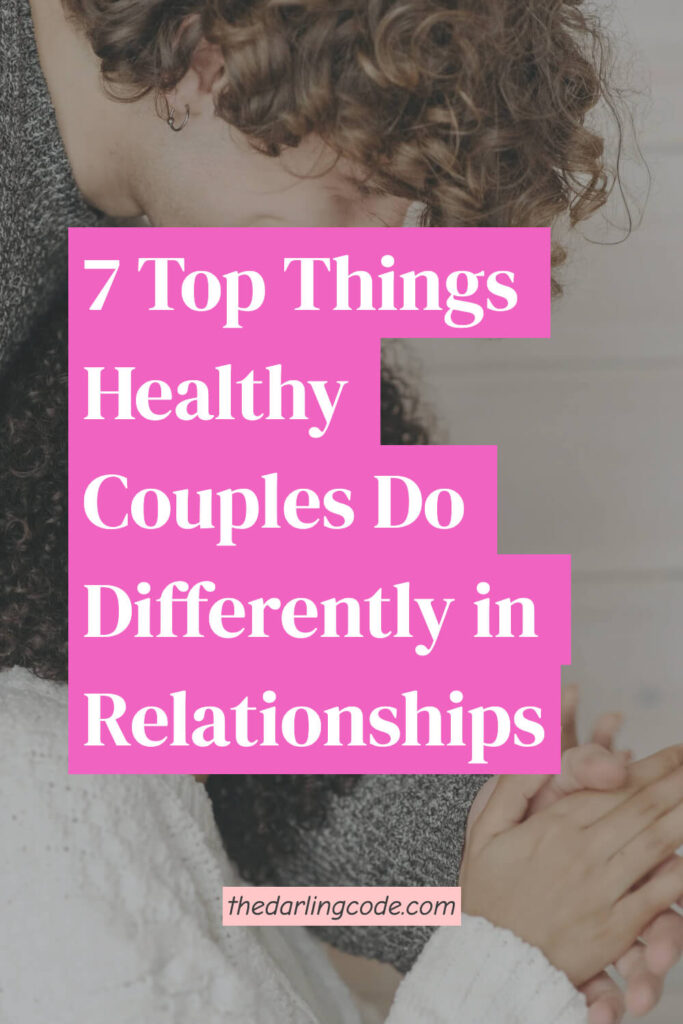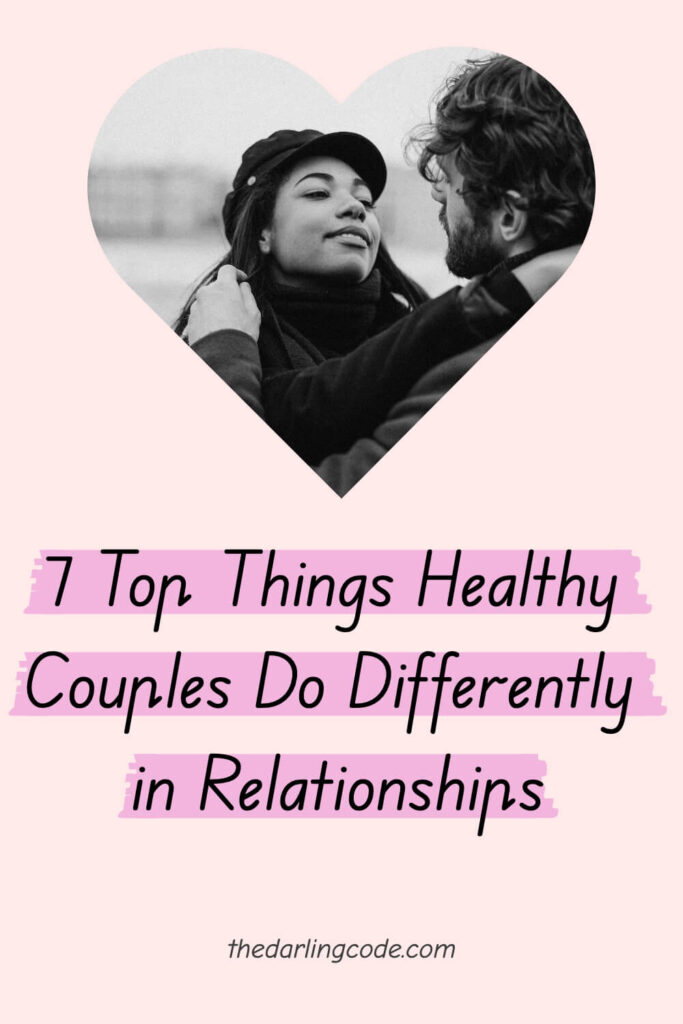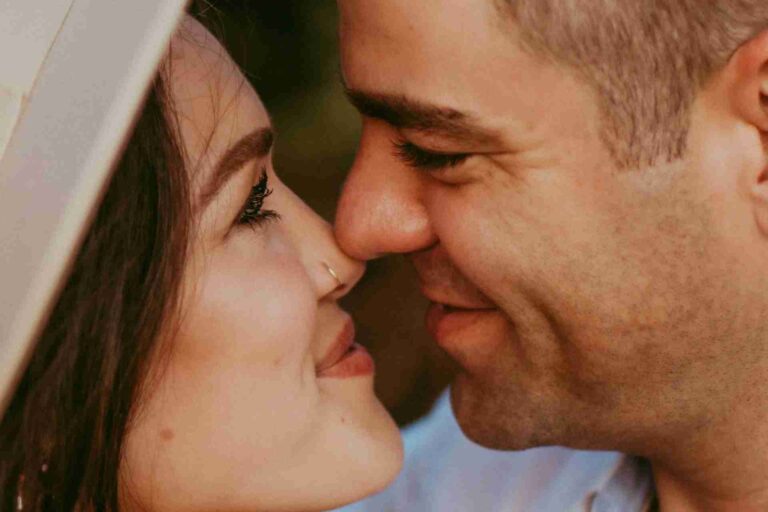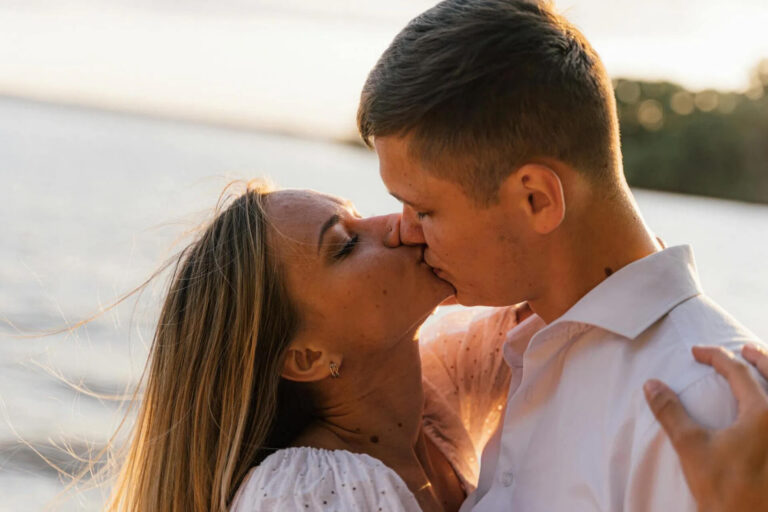7 Things Healthy Couples Do Differently in Relationships
The experiences shared in this article are based on real emotional journeys, but all personal details are anonymized and used with the explicit written permission of the clients. Any resemblance to actual persons, living or dead, is purely coincidental. We are committed to treating all client stories with the utmost confidentiality and respect.
The Grocery Store Epiphany
Last Tuesday, I ran into a former client, Maya, at the grocery store.
She was holding a box of Lucky Charms (the “family size,” though she lives alone) and looked like she’d just finished a marathon of The Crown while stress-eating dark chocolate.
When she saw me, she blurted, “Carsey, I need to tell you something: I finally get it.”
A year ago, Maya had been stuck in a cycle of dating emotionally unavailable partners.
Now, she stood there grinning, explaining how she and her partner had navigated a rough patch by “doing that weird grocery list thing you suggested.”
Her story wasn’t about grand gestures or fairy-tale moments—it was about small, intentional choices.
That’s the secret sauce, isn’t it? Healthy relationships aren’t built on perfection; they’re crafted through daily, grounded habits.
Let’s unpack seven of them.
Save this article for later—Pin it to Pinterest and come back when you need it! 📌

1. They Turn “You” Statements into “We” Experiments
Example: Instead of “You never listen to me,” try “I feel disconnected when we’re both scrolling. Could we try a no-phones dinner this week?”
Early in my career, I worked with a couple who fought constantly about household chores.
The breakthrough came when they reframed their arguments as teamwork puzzles.
“What if we treat this like a project instead of a blame game?” the wife suggested.
They created a shared to-do list app with silly rewards (e.g., “Whoever unloads the dishwasher gets to pick the next Netflix show”).
Why it works: Shifting from blame to collaboration reduces defensiveness. It’s not about keeping score—it’s about solving problems together.
2. They Schedule “Maintenance Check-Ins” (Yes, Like a Car)
Real talk: Even my husband and I have a 15-minute weekly “tune-up.”
We sit on our porch swing (weather permitting) and ask:
- “What felt good this week?”
- “What’s one small thing we could adjust?”
One client, a nurse working night shifts, used this method to address her resentment about mismatched schedules.
They started leaving voice memos for each other during downtime—a modern twist on love letters.
Pro tip: Keep it low-pressure. No spreadsheets, no therapy-speak. Think of it as emotional preventive care.
3. They Embrace the “Messy Middle”
Storytime: Early in my 20s, I believed conflict meant failure.
Then, during a heated debate about holiday plans (my family’s chaotic Thanksgiving vs. his low-key Friendsgiving), I realized: Disagreements aren’t wildfires—they’re campfires.
They can either destroy or create warmth, depending on how you tend them.
Healthy couples don’t avoid friction; they use it to clarify needs.
A client once told me, “We fight better now. Last month, we argued about his snoring… and ended up redesigning our bedroom layout.”
Key takeaway: Conflict isn’t the enemy. It’s data.
4. They Cultivate “Micro-Intimacy”
Not what you’re thinking. I’m talking about tiny, deliberate moments:
- A 6-second kiss before work (proven to boost oxytocin!)
- Texting “This made me think of you” with a photo of their favorite coffee order
One of my favorite client stories: A busy mom of three reconnected with her partner by hiding Post-it notes in his lunchbox.
The notes weren’t poetic—just things like “Remember when we got stuck in that elevator? Still glad it was with you.”
Why it matters: Love thrives on consistency, not grandeur.
5. They Protect Their Individuality Like It’s a Rare Houseplant
Confession: I once canceled a date night to finish a writing class.
My husband high-fived me and said, “Your weird short stories about sentient toasters make me laugh. Go feed your brain.”
Healthy couples encourage each other’s quirks and solo adventures.
I worked with an artist who felt guilty about her weekend painting retreats—until her partner said, “I love how you come back glowing. It’s like you recharge the us battery.”
Boundary script: “I need [X time/activity] to show up fully for us.”
6. They Speak Each Other’s “Emotional Dialect”
Case study: A client’s partner always forgot anniversaries.
Instead of assuming he didn’t care, she asked, “What’s your favorite way to celebrate?”
Turns out, he associated dates with pressure but loved surprising her with random Tuesday picnics.
Learn their language:
- Do they need space or a hug after a bad day?
- Do they feel loved through acts of service or verbal affirmation?
Quick exercise: Share this prompt: “I feel most cared for when you ______.”
7. They Practice “Radical Appreciation”
Science-backed: Gratitude rewires brains for connection.
One study found couples who regularly express appreciation are more likely to report high relationship satisfaction.
How to try it:
- Name specific efforts: “Thank you for handling the insurance call. I know how stressful that was.”
- Celebrate “ordinary” things: “I love how you laugh at your own jokes.”
A client’s “gratitude jar” (where they drop notes about small wins) became their most cherished wedding gift.
Final Words from The Darling Code
If you take one thing from this article, let it be this: Healthy love isn’t about getting it “right”—it’s about showing up, again and again, with curiosity and kindness.
Where to start:
- Pick one habit from this list that feels doable this week.
- Share this article with a friend and discuss which tip resonated most.
- Remember: You don’t need a perfect relationship—just a growing one.
With heart,
The Darling Code
P.S. If this resonated, save it to your Pinterest “Relationship Goals” board (you know the one). Today’s action step: Text your partner one specific thing you appreciate about them. Even if it’s “Thanks for not judging my cereal addiction.” 🥣💛
Got value from this article? Pin it to Pinterest for easy reference and help others discover it! 🌟


ABOUT THE AUTHOR
Carsey, Founder, Editor-in-Chief & Relationship Coach
Carsey is the heart and mind behind this space. As a Relationship Coach and Editor-in-Chief, she blends practical advice with storytelling to help you navigate love, connection, and everything in between.






